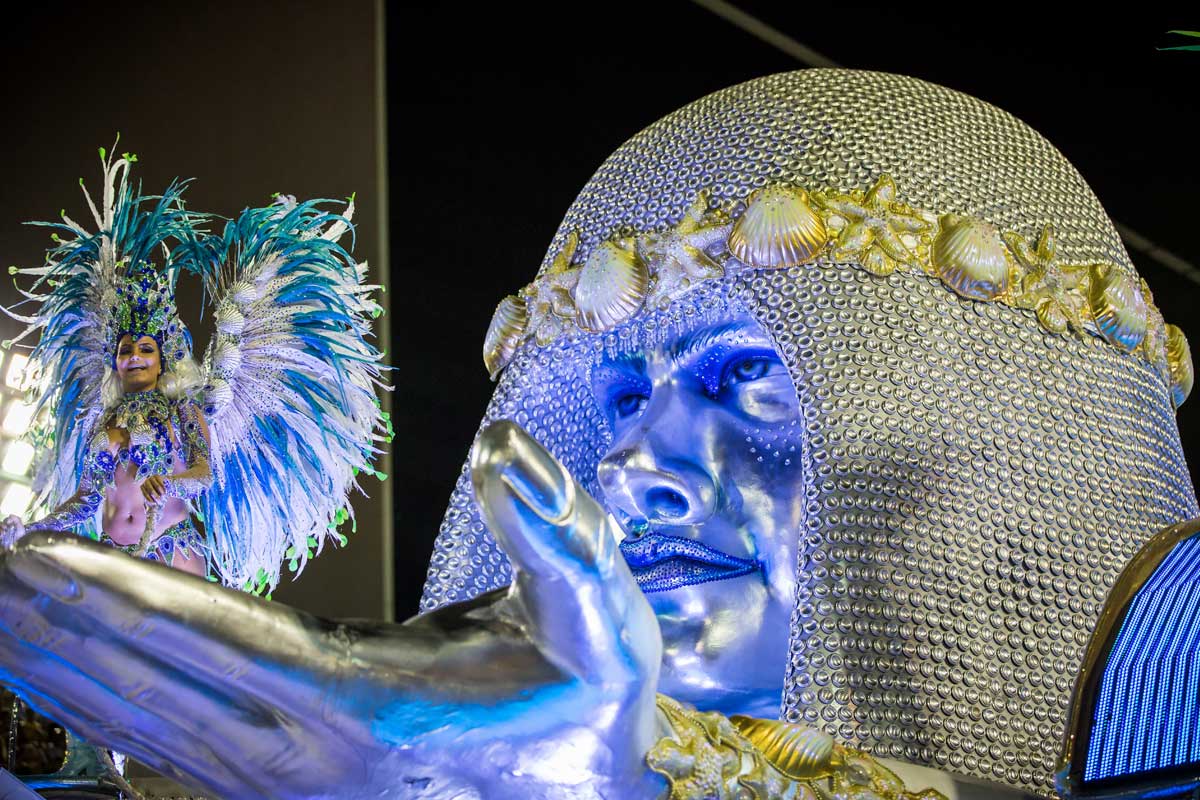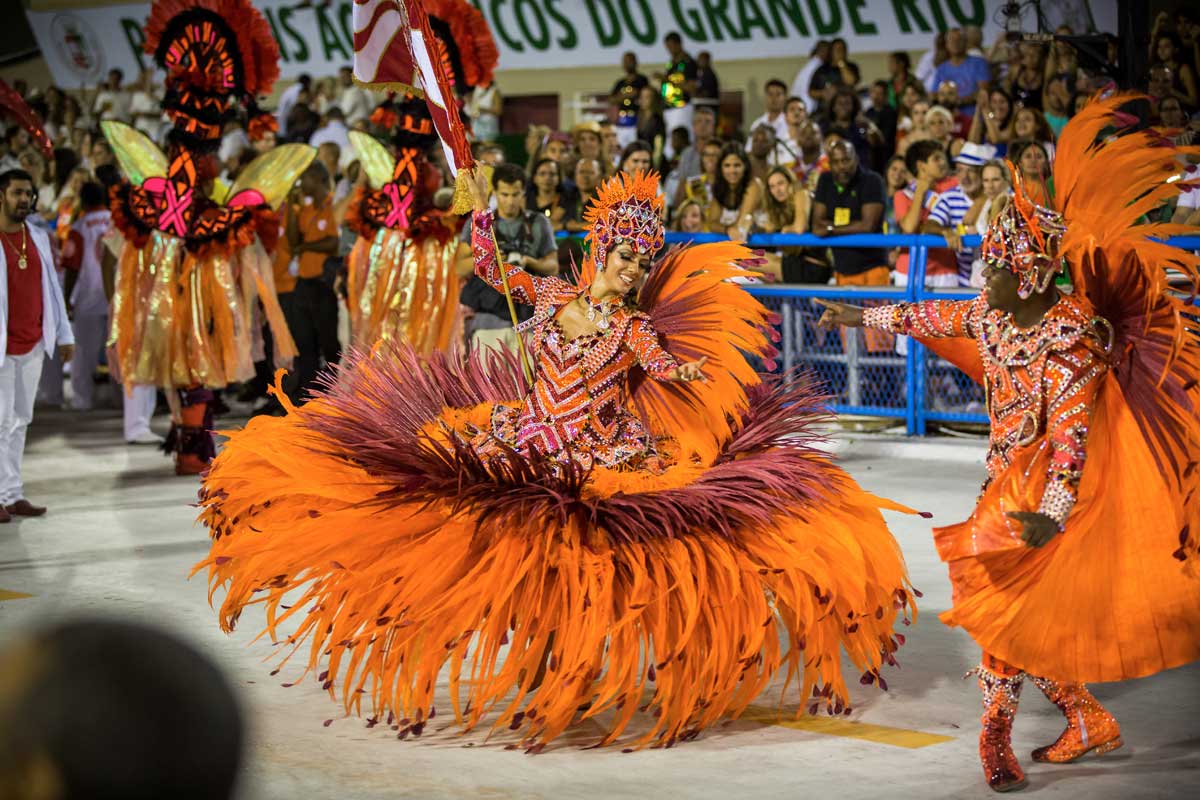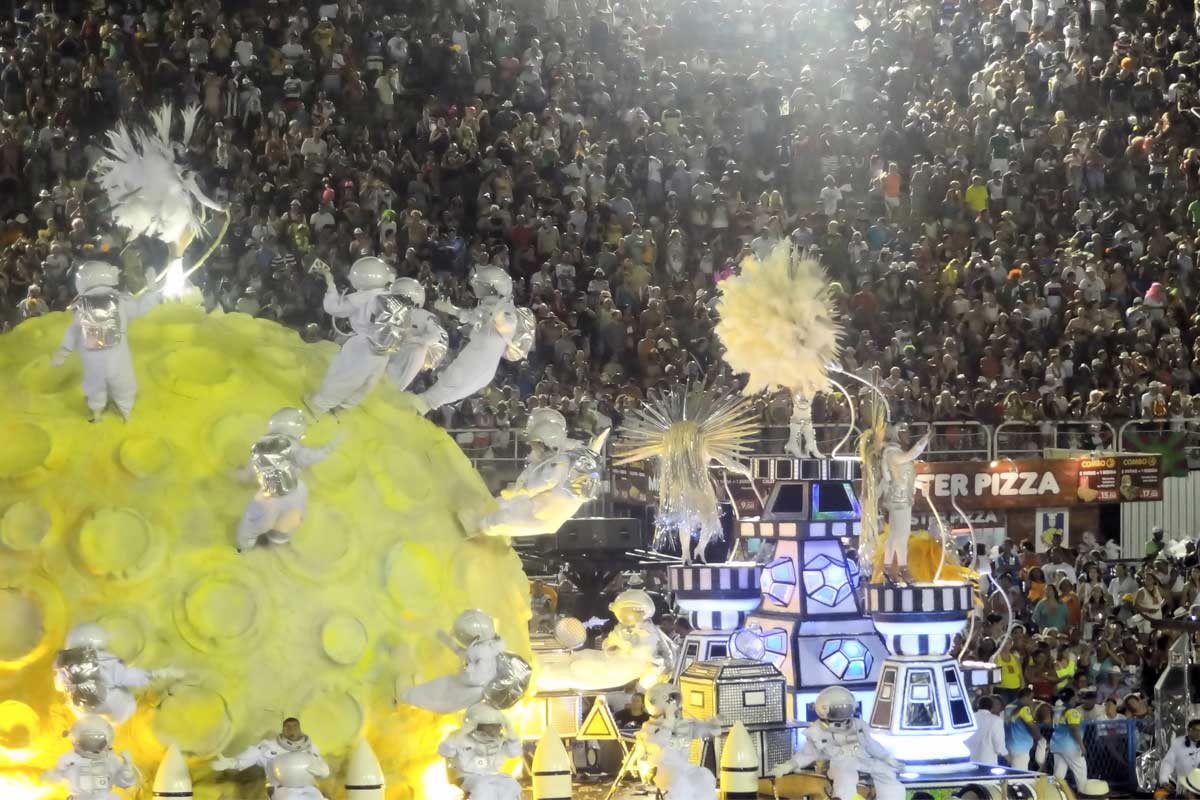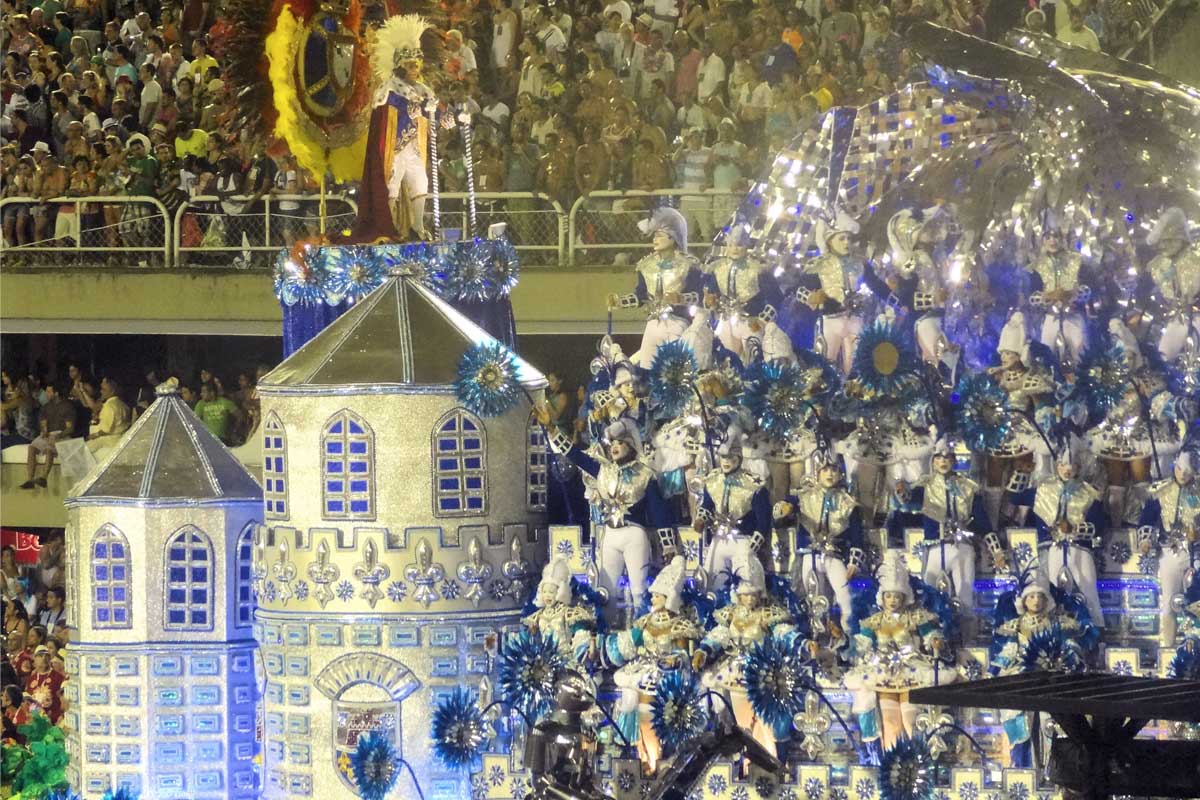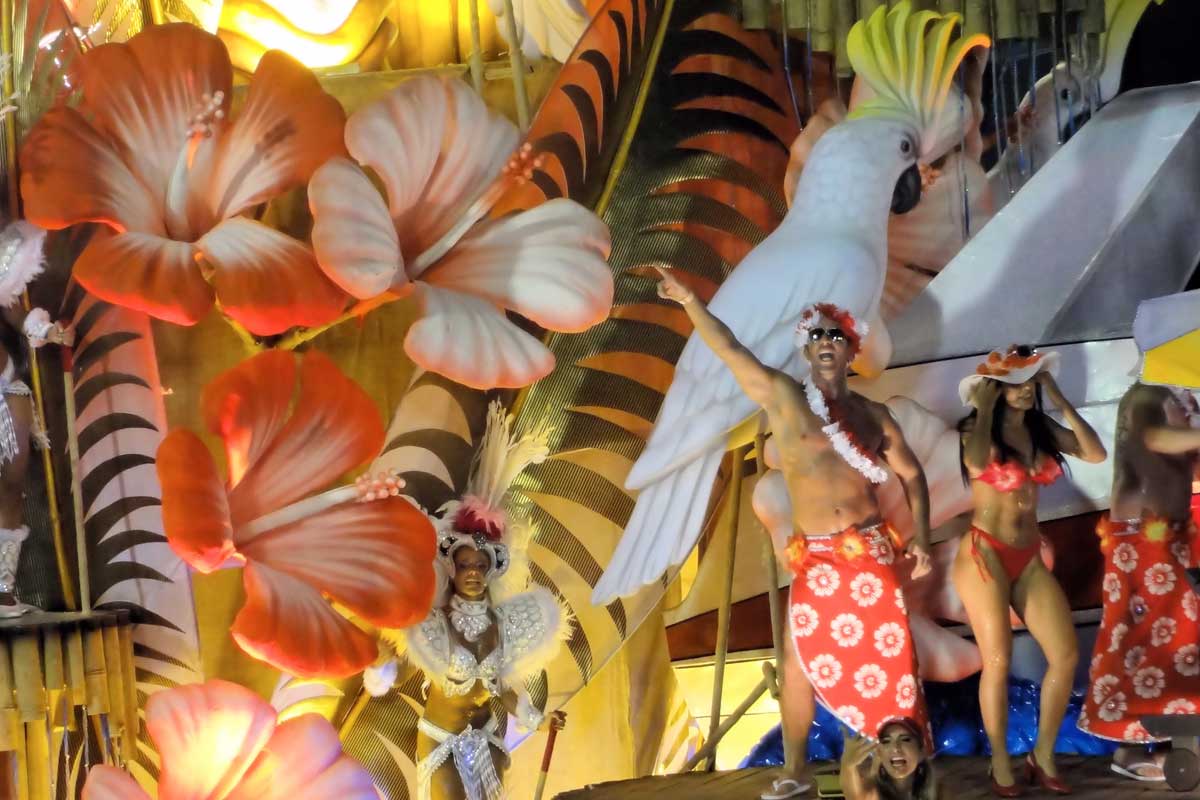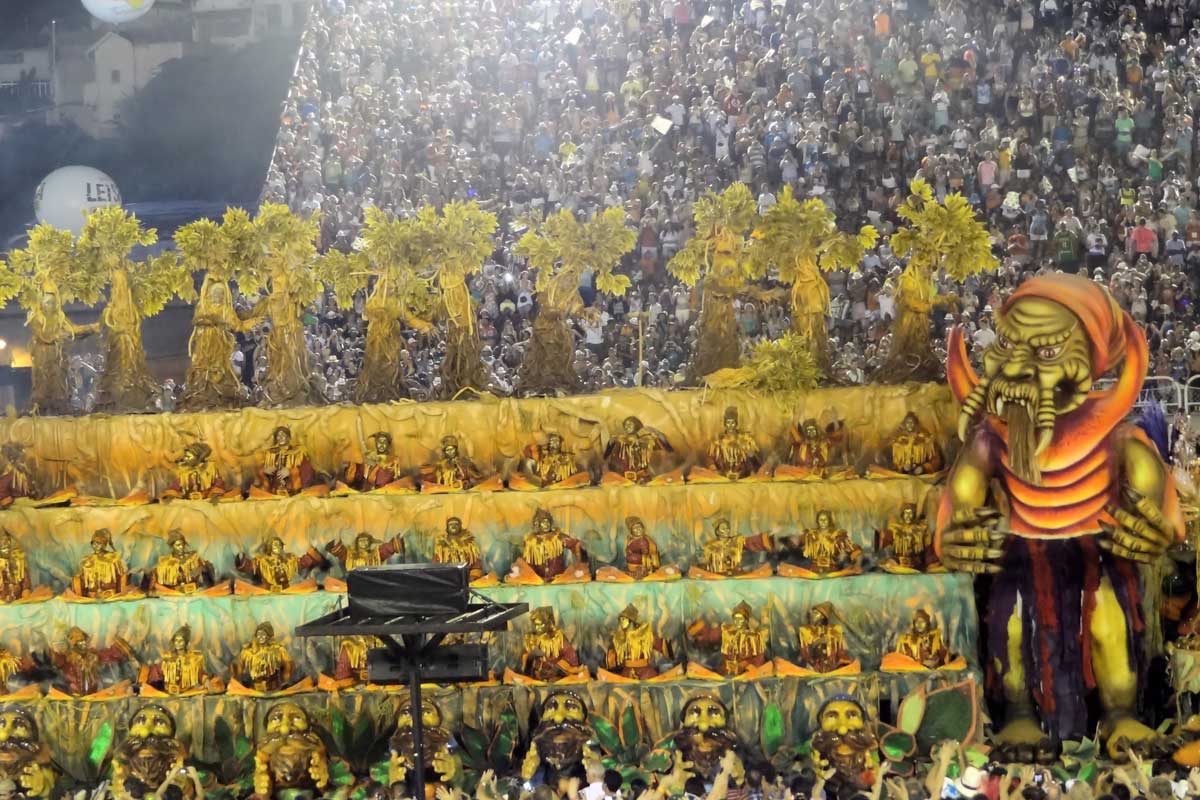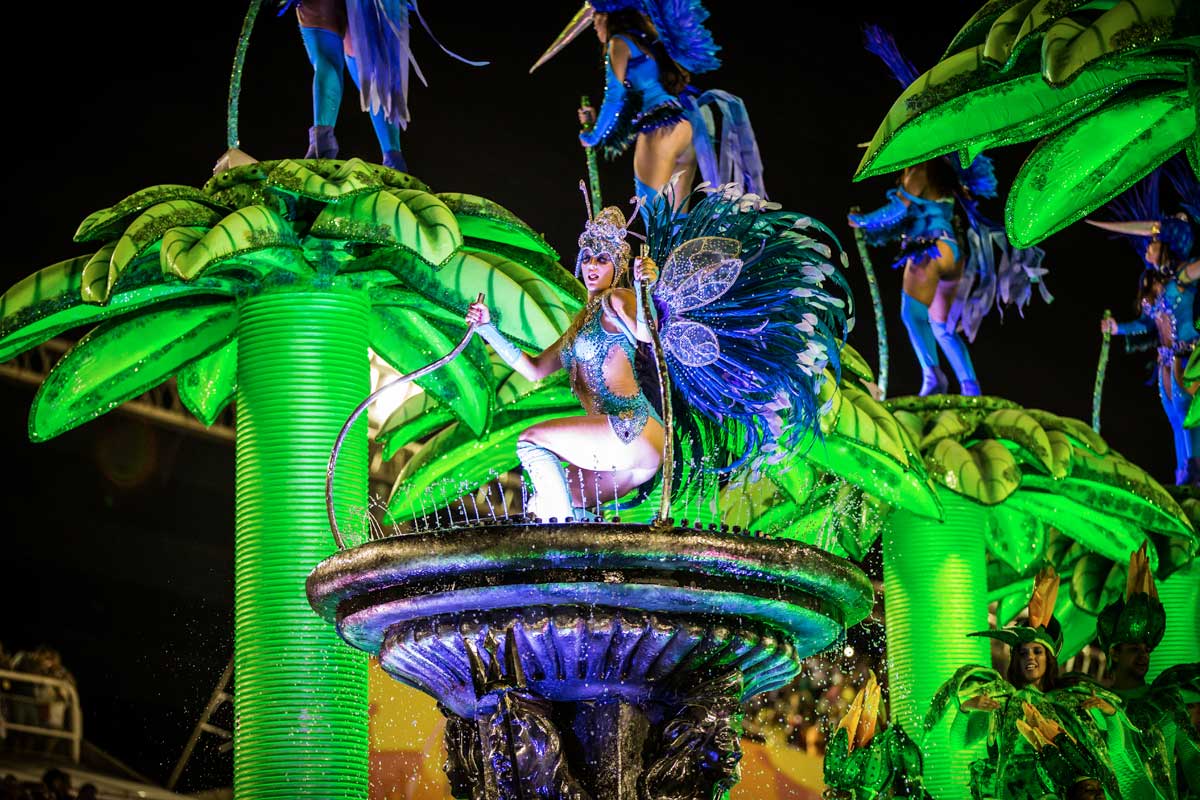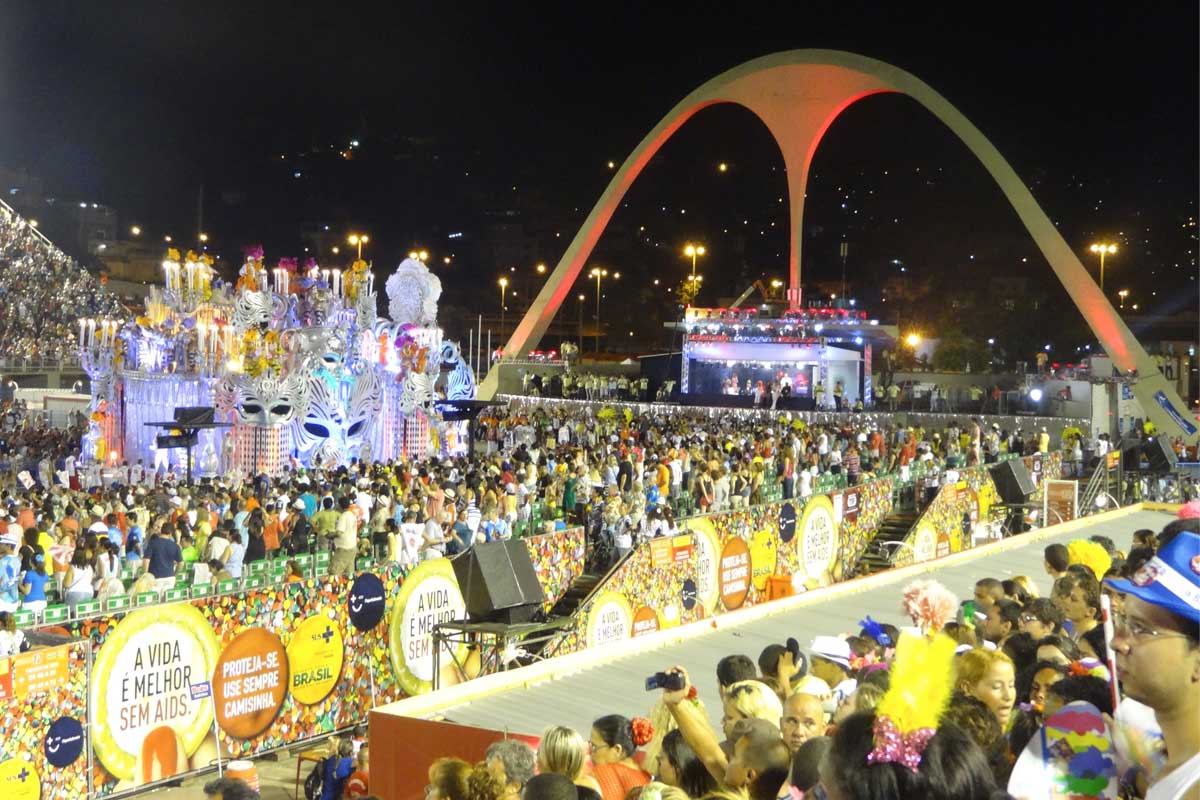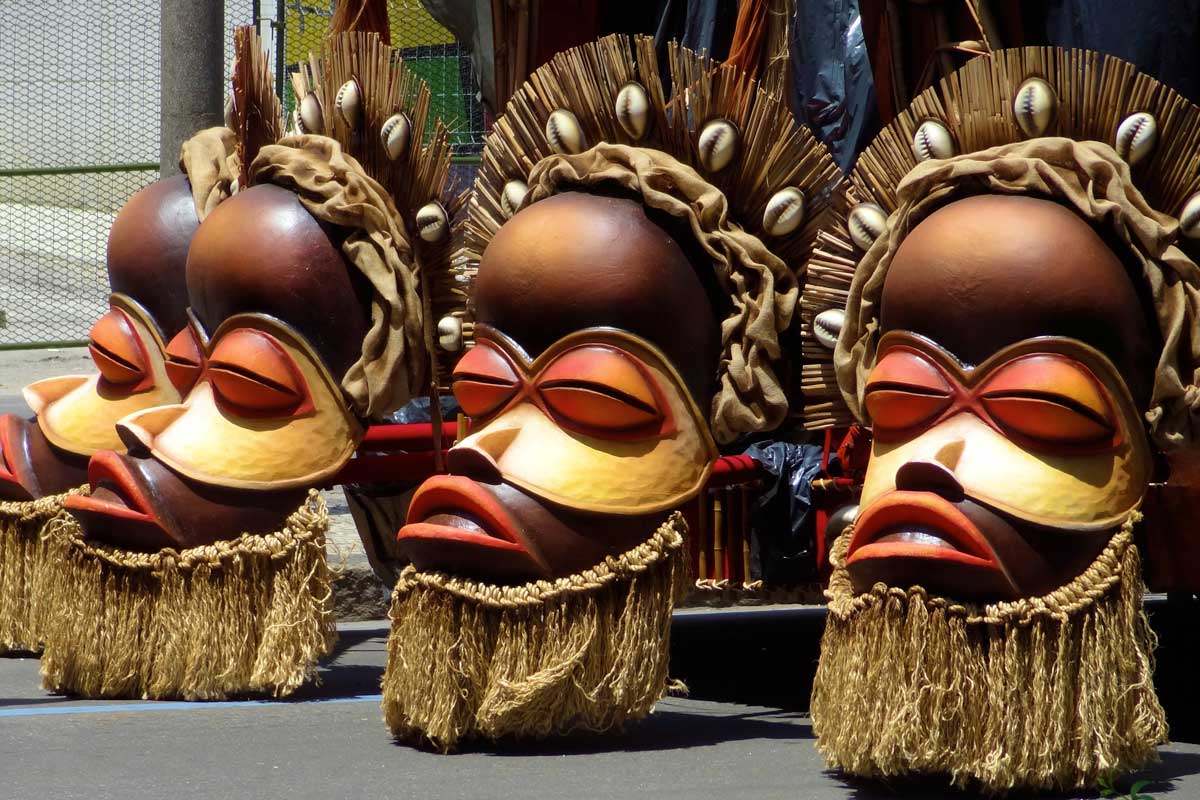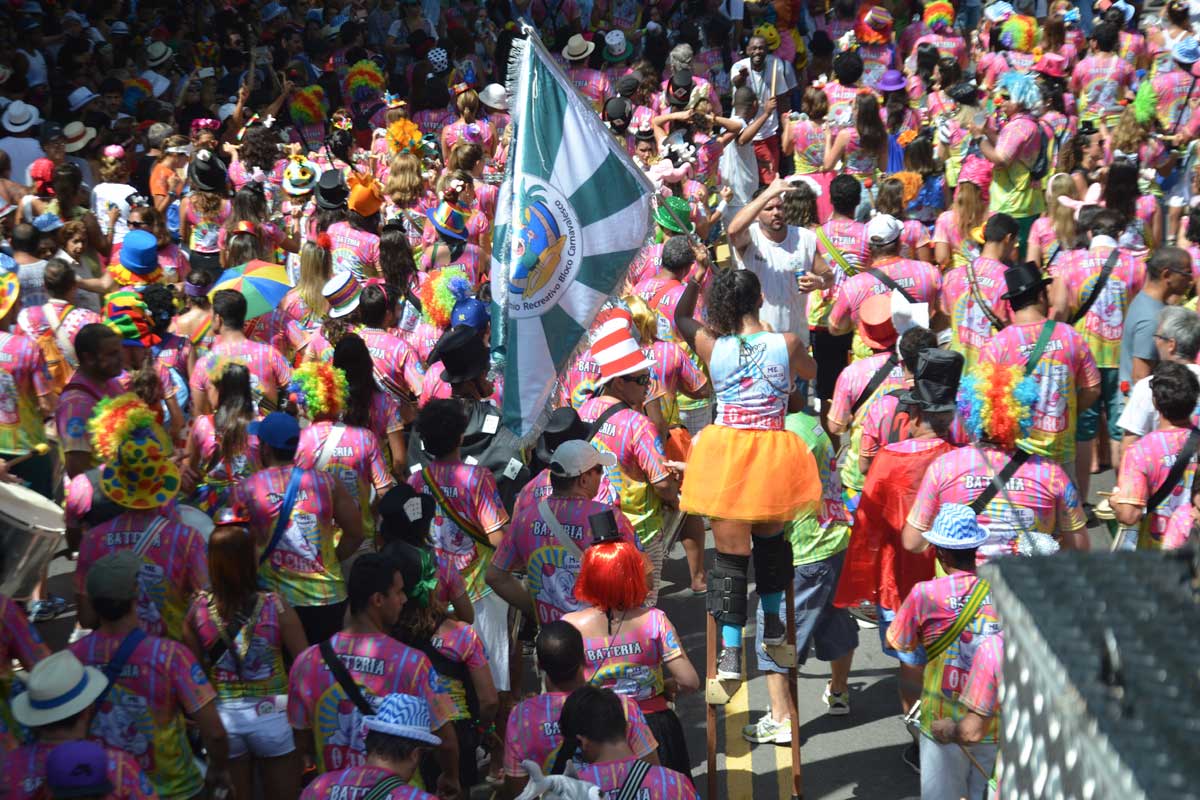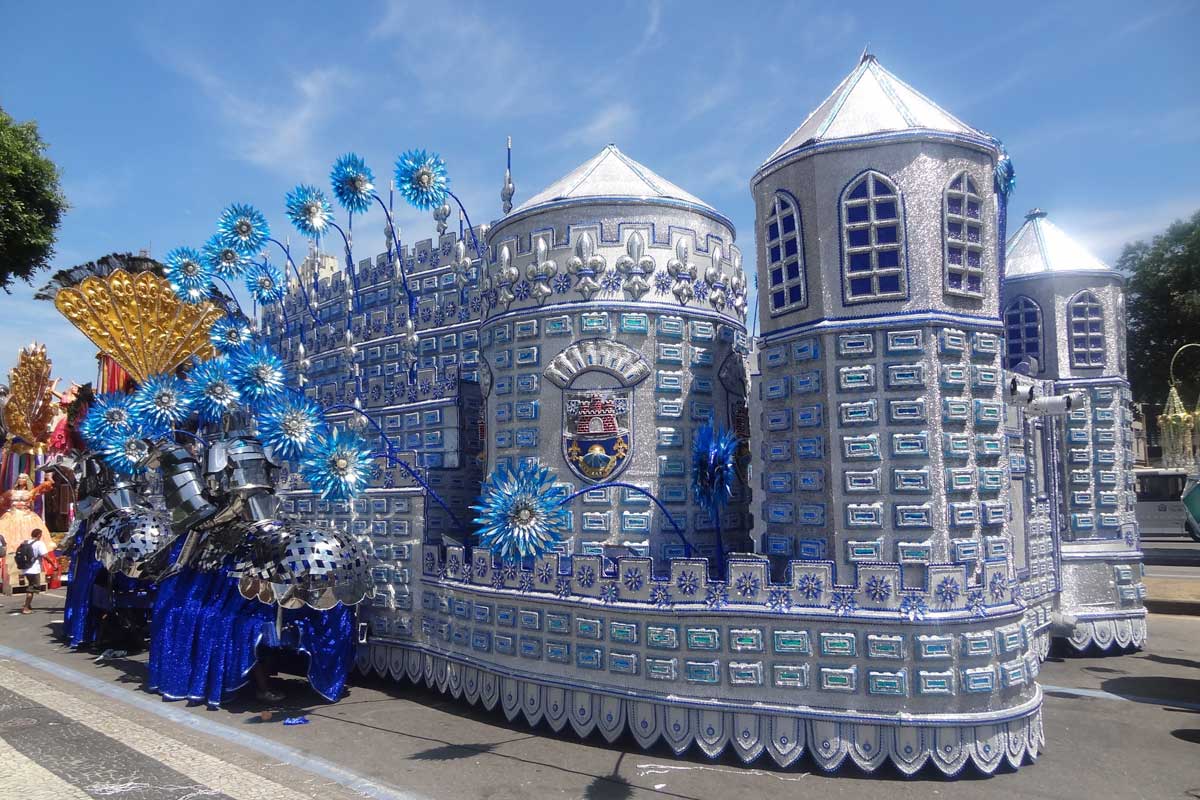Rio Carnival
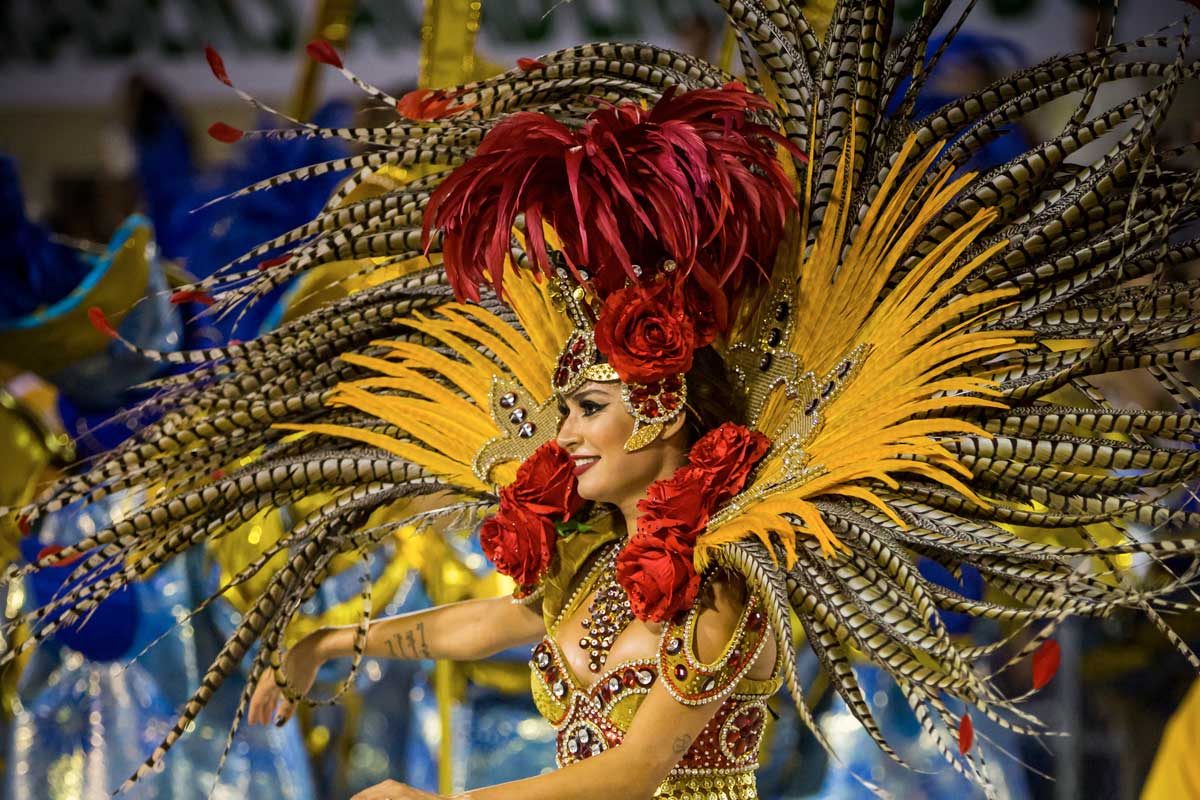
The extravagant spectacle that is Carnaval de Rio unfolds in Rio de Janeiro, Brazil’s Cidade Maravilhosa, or ‘Marvellous City’.
The action takes place over the five days preceding Ash Wednesday, which marks the start of Lent in the Christian calendar. As Lent signifies a period of abstinence from alcohol, meat and earthly pleasures, it has become tradition to celebrate this impending period of self-control by throwing a huge party in the days prior to it. In fact, the word carnaval originates from the Portuguese carne vale meaning ‘farewell to meat’.
Each day during the carnival, the city comes to a standstill and hosts exuberant parades, balls and parties. Around two million revellers throng the streets of Rio packed to bursting with locals and visitors coming together to act like pipoca (popcorn) as they dance during the day and long into the night.
The highlight of the Rio Carnival is the Samba Parade at Sambódromo da Marquês de Sapucaí, where around 200 samba schools compete for the title of Carnival Champion. The flamboyant dancers, dressed in sequins, feathers and costumes, perform atop elaborate motorised floats. They rehearse for up to 12 months before the carnival to ensure their highly choreographed shows of vast proportions are perfectly executed.
In addition to the big parades, street corners host their own blocos and bandas, which are free, dance parties featuring live music performances. Anyone is welcome to join in. Balls are held all over the city with the most popular being those held at Scala nightclub and the glamorous and exclusive Magic Ball at the Copacabana Palace Hotel.
WORDS OF WISDOM
- If participating in the blocos and bandas, bear in mind these can be colour-coordinated affairs — be prepared to purchase a T-shirt of the required colour to fit in.
- Southern Rio (Zona Sul) is probably the most salubrious and safe area to stay in, and has the best infrastructure. If travelling into the city to celebrate the festivities, note that the subway runs 24 hours during the carnival.
- Accommodation prices can triple during the carnival period, so booking ahead, at least six months in advance, is essential. Many hotels will request upfront payment in full to secure the booking.
- Samba Parade tickets sell out early too and the prices tend to rise closer to the event.
